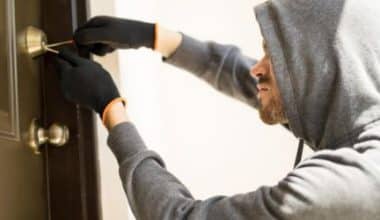As homeowners, you realize this asset is one of the most important property assets you must cover or get insurance on, and you cannot afford to cover any damages if an unexpected tragedy strikes. Homeowners insurance is necessary if you care about the safety of your home and belongings. Everything you wanted to know—and more—about homeowner’s insurance is here. Keep reading to learn more.
What Does Homeowners Insurance Cover?
The standard homeowner’s insurance plan covers the cost of repairing or renovating your property and its contents if they sustain damage in an unforeseen circumstance. This coverage usually includes damage caused by fire, smoke, theft, vandalism, or damage resulting from a bad weather event such as lightning, wind, or hail. Additional covered damage could come from external circumstances, like a falling tree.
This coverage policy includes your heating and cooling systems, as well as kitchen gadgets, furniture, clothing, and other properties. The insurance policy covers structures outside your property, including your garage, barn, or shed, as well as outside grills or fireplaces, swing sets, walls, or fences.
You may also include a swimming pool or other recreational equipment, but these highly sensitive items may require extra liability coverage.
You must understand the details of your insurance package and how much coverage you can expect in case of a claim. Few lenders only need adequate homeowners insurance coverage to offset your mortgage, although, in most situations, this will not be nearly enough to renovate your home and restore what you lost.
Furthermore, you should also consider that the cost of rebuilding may increase. Improvements or extensions made to your home intensify labor or material costs, and changes to zoning requirements might require additional insurance coverage.
Homeowner Insurance Cover
Outlined below are some of the items protected by homeowners insurance coverage. Study them in-depth so you know when to get additional coverage for items not included in this list.
#1. Dwelling coverage
This insurance plan covers the structure of your home, along with the walls, floors, windows, and roof. Built-in equipment, such as furnaces, is also normally a part of your dwelling coverage. An attached garage, porch, or deck is not left out of your dwelling coverage, either.
Various homeowner’s plans cover your dwelling for any cause of damage that isn’t exactly excluded. Some of the most popular causes of homeowners insurance claims include issues like wind, hail, freezing, fire, and lightning.
#2. Personal property coverage
This type of coverage is for your personal belongings, hence the term personal property, and includes items like clothes, furniture, electronic devices, and equipment that aren’t in-built. A lot of homeowner packages cover these items located anywhere, not just inside your home. Therefore, if someone steals your scooter from outside a store, there is a high chance it will be insured (minus your deductible).
In some homeowner’s policies, personal property coverage works separately as compared to dwelling and other structure coverage. Instead of insuring your properties for anything that isn’t specifically removed, homeowners’ policies usually protect only situations that are listed.
#3. Loss of use coverage
You might ignore that section of your homeowner’s insurance policy titled Additional Living Expenses, but you must understand that this feature might actually come in handy when you least expect it.
You usually need these additional living expenses when your house is damaged and you require coverage for a place to stay while renovating it.
Loss of use coverage may pay for hotel stays, restaurant meals, or other costs related to living somewhere while your home is being prepared after a disaster, and your policy would cover this.
As long as your home is being renovated for a covered claim, you’ll likely be qualified for loss of use coverage. However, if your home’s damage is from a disaster that isn’t insured, such as a flood, your insurer won’t provide funds for additional living expenses.
#4. Liability coverage
Personal liability insurance offers financial assistance if you’re responsible for harming someone or destroying their property. Coverage generally includes anyone in your household, including pets; therefore, if your dog bites someone at the park, you may have coverage.
Liability insurance also includes any bodily injury and property damage to others, with some exceptions. For example, your insurance premiums won’t insure criminal acts or harm you on purpose. Neither will it cover injuries or damage from a car accident; this is usually covered by your liability car insurance company.
#5. Medical payments coverage
Medical payment coverage protects you if you are responsible for inflicting physical injury on someone outside your household. However, you don’t need to be found responsible for medical payment coverage to pay out.
You could tap your medical payments insurance if an individual is suffering a minor injury on your property or if you are at fault for hurting someone who isn’t in your household.
The same conditions apply to liability and medical payments, with no insurance for intentional acts or car accidents, as well as other exclusions.
What Does Homeowners Insurance Not Cover?
Flooding is not a new occurrence in the United States; in short, it is one of the most common natural disasters in the U.S. However, a standard homeowners insurance plan does not insure floods resulting from natural disasters.
You might be wondering why this is so. Well, flooding is so common and likely to cause serious destruction that several home insurers can’t afford coverage for it. It’s a chance many insurers can’t take. Your homeowner’s policy includes these items:
#1. Earthquakes
Aside from flooding, earthquakes are pretty common, destructive natural disasters that are common in the U.S., particularly in the states of California and Oklahoma.
Homeowner insurance coverage won’t provide insurance for damage caused by earthquakes. If you live in a dangerous area, your standard homeowners’ insurance plan will probably require you to purchase different earthquake coverage.
#2. Home Businesses
Your homeowner’s insurance package won’t provide insurance for your business for data loss, loss of income, or liability for wounds and damage.
If you are already operating a business from home, you should confirm your insurance coverage by researching a business owner’s policy (BOP) for small businesses.
#3. Bed bugs
It’s surprising, isn’t it? bed bugs—those extremely awful terrors—your worst nightmare to happen.
I’m sure they are not new to you, and if you have encountered these welcomed guests, you’re not alone. This year, 97% of pest-control experts have dealt with infestations, and 68% said they are the hardest to eradicate.
Treatments can be time-consuming and extremely costly, and homeowners insurance won’t provide insurance for them. Why? People see these intruders as preventable, for better or worse.
To avoid bed bugs in the future, check out our handy explainers and ensure you practice carefulness when you visit any public place like resorts or movie theaters.
#4. Damage from lack of maintenance, neglect, or wear-and-tear
From your home’s plumbing to heating and cooling equipment, there’s a lot to keep track of. But when a house is maintained and clean, it’s less likely to have long-term issues.
Certain problems are inevitable, but you can lessen their impact by regularly doing preventative maintenance on your property.
#5. Short-term rentals
If you’re thinking about leasing your property, check your homeowner’s insurance policy first. Most homeowners’ plans reduce coverage for home sharing, including Airbnb, so you need a different host insurance policy.
Your homeowner’s insurance won’t cover the personal property of a paying guest if a fire outbreak occurs in your home. And your stuff won’t be insured if your short-term tenant steals it. Therefore, Airbnb and similar businesses have their own homeshare insurance policies that you should check out.
Nevertheless, not all insurance plans are the same, so contact your insurance company to know what your insurance covers and what it doesn’t cover.
#6. Extremely high-value items
If theft, vandalism, fire, windstorm, or other disasters destroy your property, your homeowner’s insurance can help. Thus, if someone snatches your ring at the spa or if a fire destroys your earring set, your insurance plan can help you get a new one.
However, your standard policy will probably not insure extremely expensive jewelry, such as an engagement ring or a diamond broach. That’s because there is a higher likelihood of someone stealing them.
Does Homeowners Insurance Cover Water Damage?
Standard homeowners coverage can cover incidents like water damage from a blown pipe or failed washing machine hose. However, it typically does not insure damage that results from a lack of maintenance, making this part of the homeowner’s coverage tricky. Also, flooding blocked drains, and failing sump pumps are not covered by the standard policy. You may have these coverages available at an additional cost.
Now you’re wondering when homeowners insurance covers water damage, exactly? This depends on what caused the water damage. Water damage caused by a blown pipe is normally covered, as long as the damage is unexpected and incidental, and the homeowner has taken relevant steps to avoid such issues.
For instance, if your pipe freezes and bursts, insurance covers the water damage with a 100% possibility, minus your deductible.
Nevertheless, if you haven’t been at home for a few days and you turn off the heat during freezing temperatures, your insurance provider might decide to deny your claim
Keep in mind that a standard homeowners insurance plan practically always exempts flood damage. You’ll mostly need a different flood insurance program for this type of coverage.
Who Needs Homeowners Insurance?
Basically, Homeowners insurance is not a requirement by law, but your lender will require it if you have a mortgage. If you don’t have a mortgage, it’s a good idea to insure your property and purchase homeowner insurance coverage.
What is included in property insurance coverage?
Your property insurance usually covers damage, theft, and other incidents to your building, other structures, and personal belongings. Normally, it includes several specific weather-related conditions, resulting from damage caused by fire, smoke, wind, hail, the impact of snow and ice, lightning, and several others.
What is the 80% rule in homeowners insurance?
The 80% rule in homeowners insurance means that an insurance provider will only fully cover the expense of damage to a house if the holder has bought insurance coverage equal to at least 80% of the house’s total replacement value.
Does house insurance cover electrical problems?
Yes, residential electrical wiring is usually provided under homeowners insurance policies for additional electrical repairs and similar damage.
What is the most important coverage for homeowners insurance?
The most important coverage for homeowners insurance is getting Liability coverage. It is the best you’d ever buy in the insurance world, so buy as much as you can afford.
Conclusion
So we just provided you with information on what homeowners insurance covers. Now you’d know if you need to get additional coverage for the various items not covered by a homeowners insurance policy.
What Does Homeowners Insurance Cover? FAQs
What is the most common home insurance coverage?
The most common home insurance coverage is the HO-3.
What situations would insurance not cover?
- Earthquakes, sinkholes, and other “earth movements”
- Acts of war.
- Acts by the government (like seizure or eminent domain)
- Nuclear accidents.






